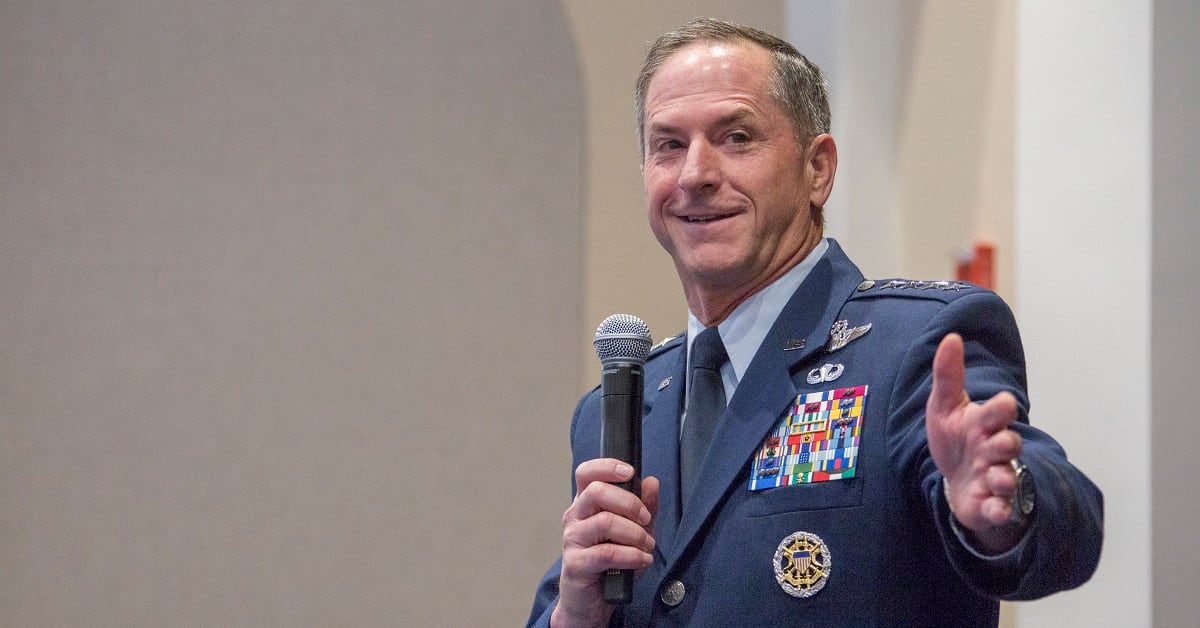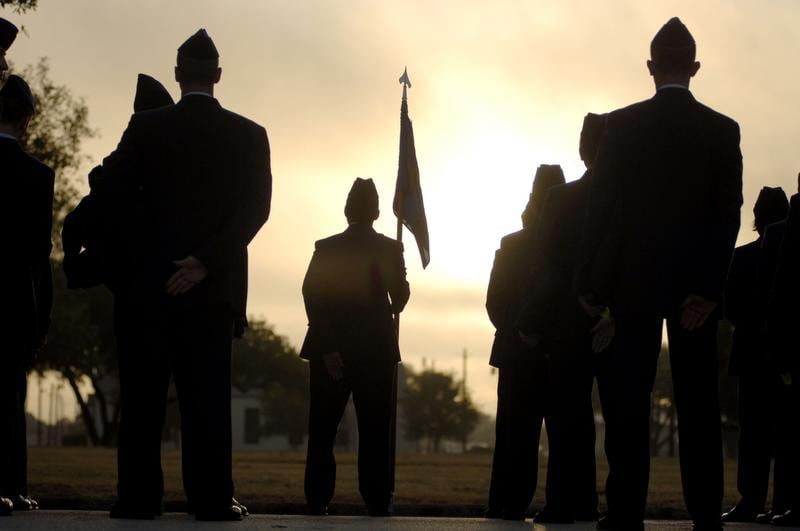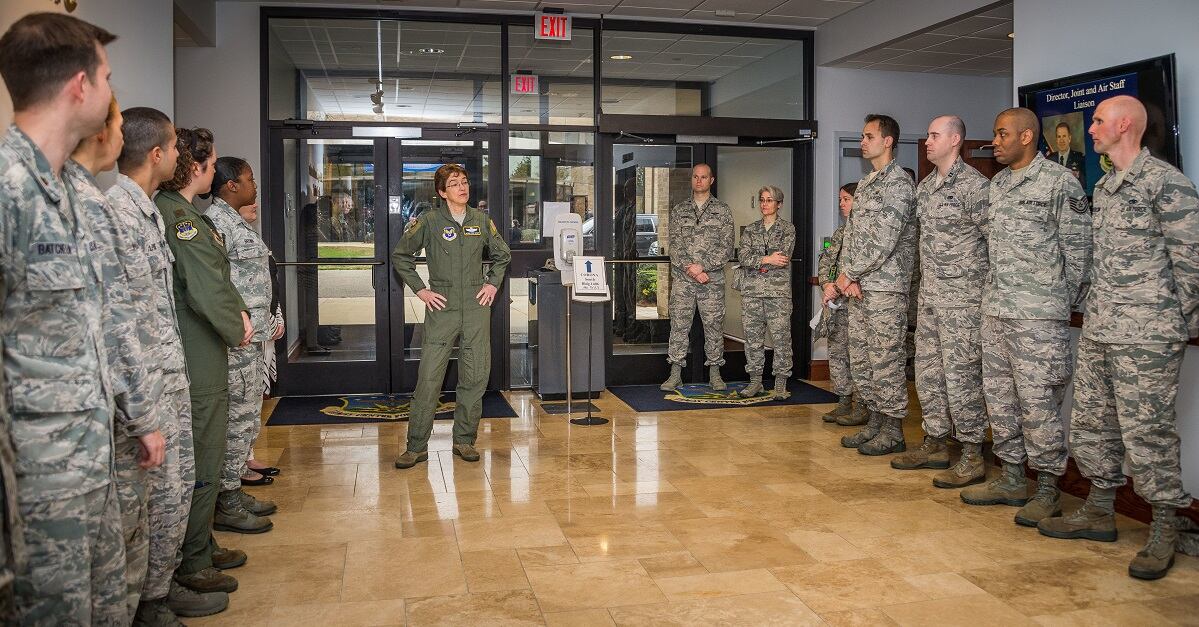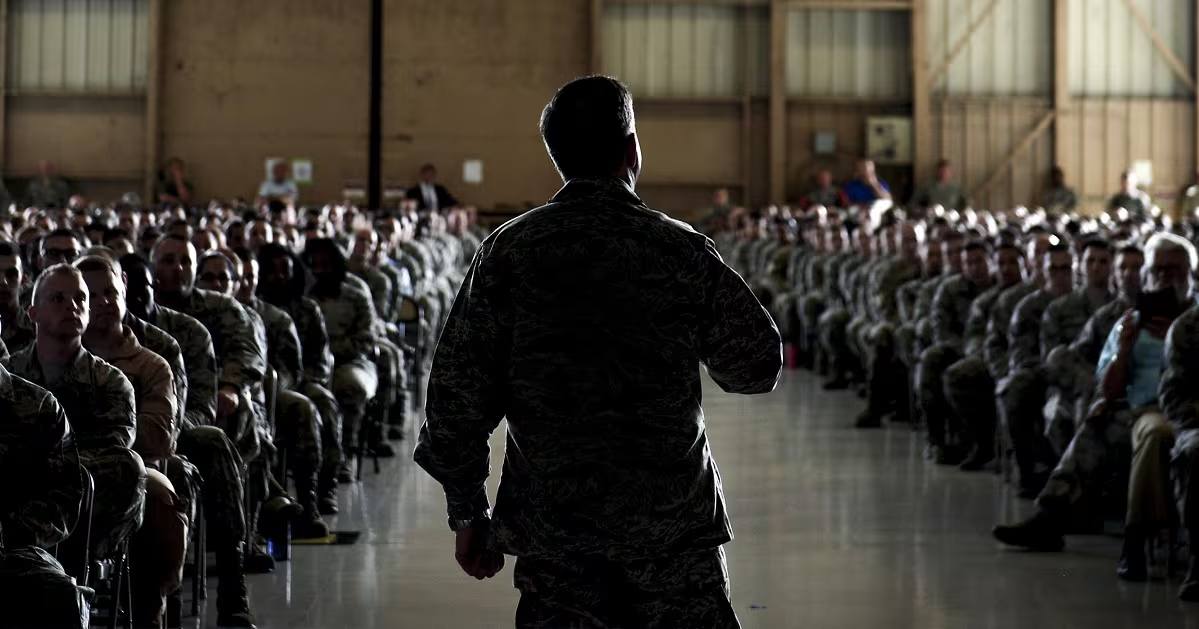His pseudonymous columns on problems with the Air Force’s leadership development sliced through years of ossified thinking like a Valyrian steel greatsword.
They went viral across the service, drew plaudits for their straight talk about how leaders are really chosen — and even got the attention of Chief of Staff Gen. Dave Goldfein.
Now, the anonymous officer known as "Col. Ned Stark” has come forward as Col. Jason Lamb, a career intelligence officer and leader at Air Education and Training Command. And he has a challenge for the Air Force: Continue the hard, overdue conversation he started — be bold and be frank, because the next generation is at stake.
“I think what I’ve done, more than anything, is brought something that was being discussed — and demotivating people — on the periphery into a thing that we can actually talk about openly,” Lamb said in a May 6 interview at Air Force Times’ newsroom in Northern Virginia. “My mom once told me when I was a kid, you should always leave the party while you’re still having fun.”
Lamb said he’s decided to reveal himself now — almost exactly a year after War on the Rocks published his first column, “A Call for Senior Officer Reform in the Air Force: An Insider’s Perspective” — because he thinks he’s said everything he can under the Ned Stark persona, and by going public, he can help guide the conversation into its next phase. Lamb’s identity was first revealed on a War on the Rocks podcast Monday.
Lamb thinks that’s the only way the Air Force can move beyond small-ball, baby-stepping solutions, toward something that really changes the service for the better.
“The Air Force really struggles with candor,” Lamb said. “The entire system incentivizes risk avoidance. What we see as risk these days, really speaks to our problem with risk avoidance. When we stand up and applaud when a wing commander chooses not to abide by an Air Force Instruction because he thinks it’s silly, that’s seen as a huge victory.”
Lamb, who is now director of intelligence, analysis and innovation at Air Education and Training Command at Joint Base San Antonio-Randolph in Texas, graduated from the Air Force Academy in 1995. His father was a Marine Corps non-commissioned officer who fought in the Korean War, and he thinks that’s where he got his lack of tolerance for BS.
Although he is seriously considering retirement next year, though he hasn’t made a final decision, Lamb said he has loved serving in the Air Force and, as a squadron and then group commander, tried to improve it where he could.
RELATED

But over the years, beginning when he was a captain, Lamb’s frustrations built as he pieced together how things really worked. He grew troubled by the way the Air Force deemed certain officers “high potential” early on, promoted them early and fast-tracked them into leadership positions. When some of those fast burners displayed flaws, however, the Air Force failed to hold them accountable, admit its mistake and correct course, he said.
The uninspired, or even toxic leadership that grew in some places had broader, disastrous effects, he said. Over the years, Lamb saw one talented officer after another reach the end of his rope and, frustrated, leave the service.

“People were burned out, leaving in droves,” Lamb said. “You couldn’t get them to stay in.”
That’s not to say the Air Force doesn’t have some outstanding leaders, he said. It does. He believes Goldfein is one of them.
But even when toxic or misbehaving commanders do get investigated and fired, Lamb says, there’s no process for reviewing how those commanders got chosen in the first place, to see whether the selection process missed warning signs or went wrong, and what can be improved.
“There are no consequences for any of the senior folks who pushed those people for command,” Lamb said. “Nobody ends up in command without someone sponsoring them, vouching for them, recommending them.”
At the same time, he saw other officers who were not selected for early advancement at the beginning of their careers — though they may have later developed into exceptional leaders — get left behind.
When he raised his concerns to peers, mentors and supervisors, he said they’d nod and agree — but nothing ever changed. You’re absolutely right, they’d tell him — but this is the system we live in. And from his perspective, the powers that be showed little inclination to fix things.
“Once a system gets in place, the people who benefit from that system seek to perpetuate the system — ‘It obviously worked, because it selected me,’ ” Lamb said. “I’m idealistic, inherently, but I’m a realist by training. But I’m continually surprised, and sometimes let down, by our inability to actually fix ourselves. And the higher up I went, the less there seemed to be any sense of urgency or need to reform anything.”
RELATED

His frustrations spilled over early last year when he realized that not only was nothing changing, but things were probably getting worse over time and, even as a group commander, there was surprisingly little he could do to make improvements.
He reached out to Steve Leonard, the retired Army colonel who now satirizes the military online as Doctrine Man, and vented. With Leonard’s encouragement, Lamb wrote a sprawling — even ranting — initial draft of his first column. He then tightened up and edited down his piece, and sent it to War on the Rocks.
Lamb, who at the time was a group commander at the 544th Intelligence, Surveillance and Reconnaissance Group at Peterson Air Force Base in Colorado, knew that publishing these thoughts under his own name would be career suicide. So Lamb — a big “Game of Thrones” fan — adopted the name of the show’s noble, doomed hero, who spoke truth to power and paid the price with his head.
When his first piece dropped last May 14, it went viral. Lamb then expanded on his critiques with subsequent columns on War on the Rocks and Air Force Times.
A wide variety of theories about Ned Stark’s true identity were bandied about in the Air Force. Lamb found it very telling that so many airmen, from all sorts of different career fields, were absolutely convinced “Ned” was one of them. He even heard a theory that Ned Stark was really a female mobility pilot.
Via an anonymous “Eddard Stark” Gmail address he set up, Lamb heard stories from airmen across the Air Force who were seeing the same problems he was.

“I can’t even tell you the number of people who wrote me,” Lamb said. “Good gravy, a lot of people wrote in.”
He also got the attention of Gen. Goldfein, who made Lamb’s first column required reading for top Air Force leaders at last summer’s Corona meeting. Goldfein posted his own open letter last August on War on the Rocks, comparing Lamb’s column to the famous “Dear Boss, I Quit” letter penned in 1979 by then Air Force Capt. Ron Keys, who went on to make general and head Air Combat Command. Goldfein said he agreed with parts of what Lamb said, encouraged him to keep writing — and offered him clemency and a job.
“Ned, I can assure you your head is safe,” Goldfein wrote.
Lamb spoke with Goldfein and seriously considered his offer, but ultimately decided not to come to Washington to avoid disrupting his family with another move.
But though he stayed in San Antonio, Lamb continued to consult with the personnel team at Air Force headquarters — whom he called “some really sharp, impressive folks” — and helped work on changes to the officer development process. He says recently announced changes, such as streamlining the promotion recommendation form, are on the right track.
In his columns, Lamb made several suggestions for improvement, such as 360-degree feedback evaluations in which subordinates review their commanders as part of an officer’s permanent record.
RELATED

But after talking to professional personnelists such as Col. Fred Thaden, director of the Air Force talent management innovation cell, Lamb has softened his stance slightly. He’s now trying to be less prescriptive about what he thinks specifically needs to be done, and talk more about the goals that need to be met.
“I’m a bit like the person who spent too much time on WebMD,” Lamb said. “At some point, you need to turn it over to the professionals.”
The Air Force is starting to take tentative steps forward now, Lamb said. But the process is slow, he said, and there’s no time to waste. Potential major changes to the evaluation and promotion systems would likely take three to five years to take effect, once they begin to go into place.
While “quick wins” are nice to build confidence, he said, big changes are what’s needed.
Since the endgame Lamb seeks is to grow a new generation of better leaders in the Air Force — which will take years, and perhaps decades — the service needs to start as soon as possible, and not waste several more years debating things in committee.
Only by shaking off its risk-averse culture can the Air Force start producing the officers it needs, he said.
“Speak plainly,” Lamb said. “Say what you mean. Let’s talk it out, let’s have a discussion of the pros and cons. And then for the love of God, let’s make a decision and move out.”
Stephen Losey is the air warfare reporter for Defense News. He previously covered leadership and personnel issues at Air Force Times, and the Pentagon, special operations and air warfare at Military.com. He has traveled to the Middle East to cover U.S. Air Force operations.





